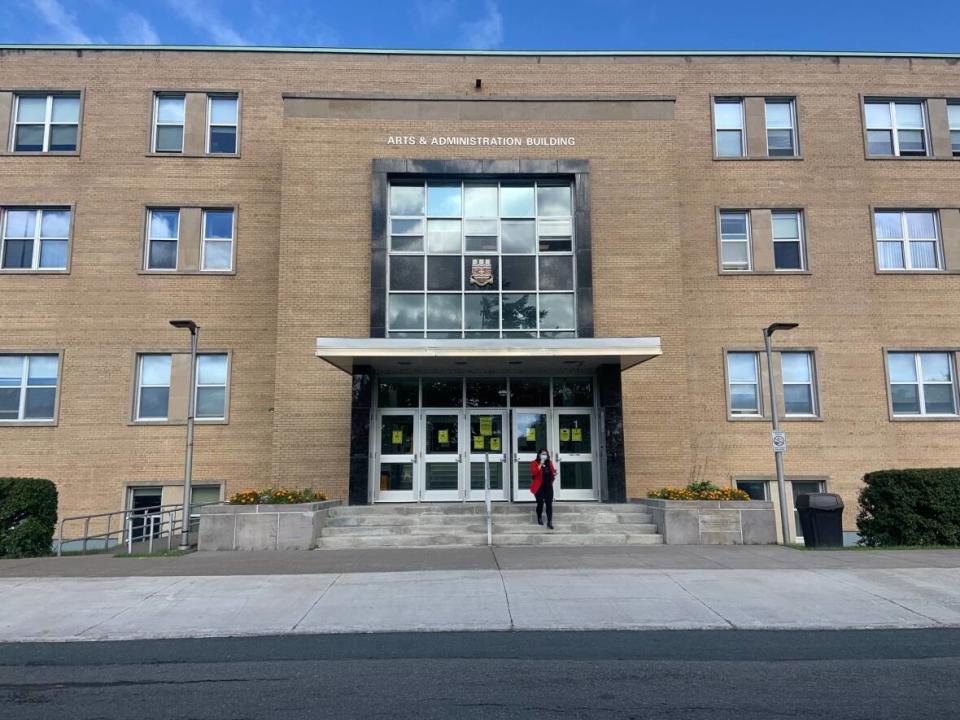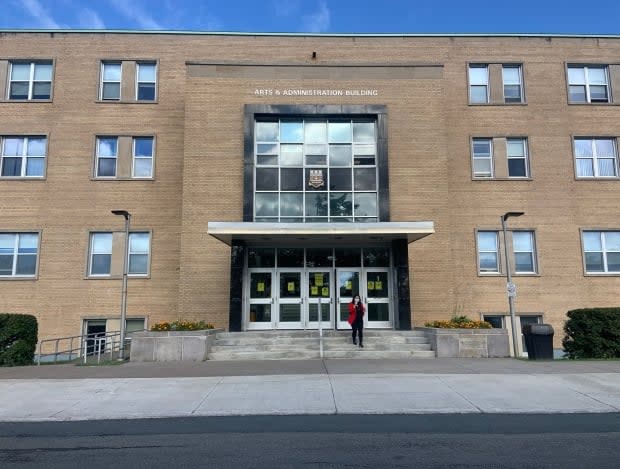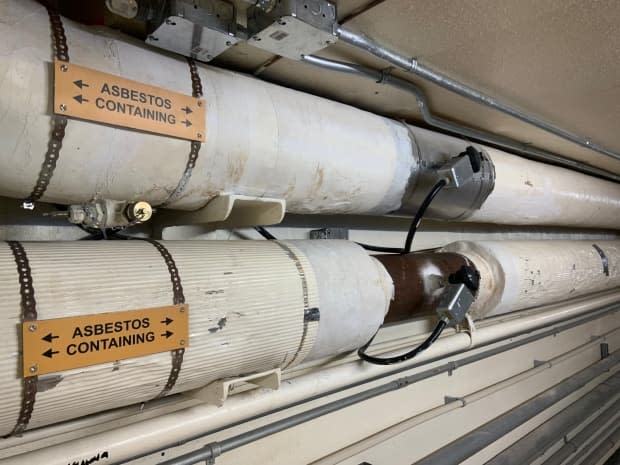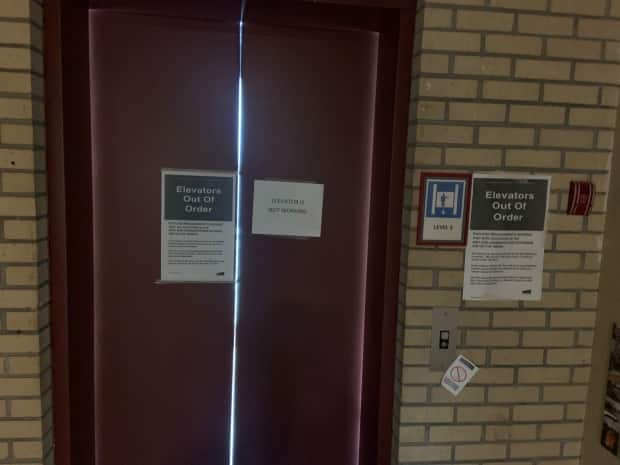How MUN plans to address its accessibility problems


Memorial University officials say they're prioritizing accessibility as they try to repair and maintain decades-old infrastructure at its St. John's campus.
Some buildings on the St. John's campus are now 60 years old, and others are just a few years younger. Signs warning of asbestos are scattered through the older buildings and the tunnels underneath campus.
According to some students, elevators break down frequently. Some sections of campus, like the upper floors of the physical education building, don't have elevator access at all.
In an interview with CBC News, MUN president Vianne Timmons said administration is aware of the problems and is working to solve them.
"As with many older campuses, we have challenges around making sure that our buildings are accessible," Timmons said. "We also know that a progressive, forward-looking [campus] thinks of accessibility not just in terms of wheelchair access, but for people who have challenges with sight or hearing, and so there is work we must do."
Timmons said the university is concentrating on universal design for future buildings, as well as figuring out how to address buildings that don't have elevator access.

Grant Vivian, the interim vice-president of facilities, said new projects, like the Core Science building and the Signal Hill Campus, are designed with accessibility in mind.
Those designs aren't always perfect — the doors between the core science building and the university centre were not originally equipped with automatic doors; however, new doors were being installed as of last week.
"We're focused on getting the fix in place," he said.
Deferred maintenance
According to a spokesperson for MUN facilities management, the university is facing about $430 million in deferred maintenance, which refers to postponed repairs of everything from roofs to ramps.
Greg McDougall, MUN's chief risk officer, said addressing deferred maintenance is top of mind for senior management.

"Deferred maintenance … and aging infrastructure is one of the institution's top risks," he said.
The university is in the process of replacing a broken elevator in the arts and administration building at a cost of $700,000.
"This was a failure that was not normal, and it impacted a lot of people, and we heard about that and we tried to work with them about different option routes," McDougall said.
Timmons said the university creates a priority list each year for addressing the deferred maintenance, and that list is refreshed each year, with accessibility as a focus.

However, MUN has faced backlash for embarking on other projects without addressing existing infrastructure and accessibility concerns. The university recently completed a nearly $60,000 renovation of several offices — including the president's office.
Timmons said the renovations were necessary and will save costs in the long run.
"We still spend $7.2 million annually on deferred maintenance," she said. "So this is, you know, a very small amount in comparison to the $7.2 million."
Beyond ramps and elevators
Andrew Dixon, a disability studies graduate student, said accessibility at the university goes beyond physical infrastructure problems.
"Accessibility … really has to be able to be flexible enough so that the needs of the student can be met and it's not positioned as some sort of hardship for the institution to do so," he said.
Dixon said he would like to see the university look at policies that create additional barriers for some students with disabilities. He pointed at requirements in some programs to take a prescribed number of courses — something that may not be possible if a student has to take time for medical appointments.
Timmons, who has a background in inclusive education, said her research money is funding a study of a potential new program for students with disabilities. She said the university will consult with the Rick Hansen Foundation, an organization that provides accessibility assessment training.
Student union says more consultation needed
She also pointed to a new committee that will look at the results of a campus accessibility audit.
Hilary Hennessy, executive director of external affairs, communications and research for MUN's student union, said she wants to see students on that committee.
"I definitely feel as if there's very few spaces provided for us to kind of come together and work together as a team to collaboratively … share the needs of students and how we're going to address them together," she said.
Students can get learning accommodations through on-campus support centres, but those centres aren't mandated to look after problems with physical infrastructure — those fall under facilities management.
McDougall said the new group will include stakeholders from across the university, including students, and address communication breakdown between departments that create additional accessibility problems.
"We have to stop working in isolation of each other. We need to come together," he said.

 Yahoo Finance
Yahoo Finance 